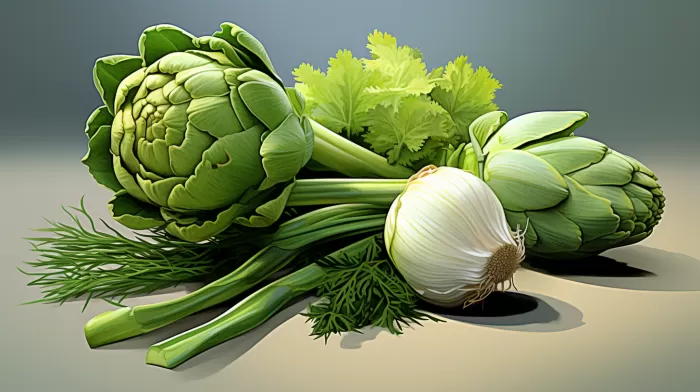You might have heard whispers that certain vegetables can go a step further than just providing your body with a healthy dose of vitamins and minerals. In fact, researchers at the University of Illinois have found that natural chemicals in some specific vegetables possess the power to kill human pancreatic cancer cells. These powerful natural chemicals are called apigenin and luteolin, and they work by inhibiting the action of an enzyme that cancer cells rely on for survival.
A Deadly Foe: Pancreatic Cancer
Pancreatic cancer is an incredibly aggressive form of cancer, often going undetected and therefore untreated until it has metastasized to other organs. It is the fourth leading cause of cancer-related deaths worldwide, and its five-year survival rate is a chilling 6 percent. The study by Elvira de Mejia and her fellow researchers at the University of Illinois has revealed the potential to use specific vegetables to fight against this ruthless disease.
Meet the Flavonoids: Apigenin and Luteolin
Apigenin and luteolin are classified as flavonoids, a group of plant chemicals that give fruits and vegetables their vivid colors. Among their many health benefits, including antioxidant, anti-inflammatory, and immune system support, these flavonoids have now been shown to hold the key to combatting pancreatic cancer cells. Apigenin and luteolin are particularly abundant in celery, artichokes, and a variety of herbs.
In the study, Mejia explains that the best results were obtained when the cancer cells were pre-treated with apigenin for 24 hours. The cells were then exposed to the chemotherapeutic drug gemcitabine for a further 36 hours, resulting in induced cell death in two aggressive human pancreatic cancer cell lines.
How Do Apigenin and Luteolin Work?
The mechanism behind this cell death lies in the flavonoids’ inhibition of an enzyme called glycogen synthase kinase-3β (GSK-3β). By inhibiting this enzyme, the production of anti-apoptotic genes in the pancreatic cancer cells is decreased, leading to apoptosis or cancer cell self-destruction.
What Does This Mean for Pancreatic Cancer Treatment?
While the research is still in its early stages, the initial findings suggest exciting possibilities for the future of pancreatic cancer treatment. The combination of apigenin and luteolin could potentially be incorporated into a patient’s chemotherapy regimen, enhancing the efficacy of the chemotherapeutic drugs and potentially increasing the survival rate of this deadly disease.
Other Cancer-Fighting Vegetables
In addition to celery and artichokes, there are many other nutrient-rich vegetables known for their cancer-fighting abilities. Some of these vegetables are:
- Cruciferous vegetables: Broccoli, cauliflower, and Brussel sprouts contain compounds known as glucosinolates, which are known for their cancer-fighting properties when consumed in adequate amounts.
-
Leafy greens: Spinach, kale, and other leafy greens are rich in antioxidants, minerals, and fiber, all of which play important roles in cancer prevention.
-
Tomatoes: The red pigment in tomatoes, lycopene, is a powerful antioxidant that has been shown to reduce the risk of several types of cancer, particularly prostate cancer.
-
Garlic and onions: These pungent vegetables contain compounds that have been demonstrated to possess anti-cancer properties, with the most notable being allicin.
-
Carrots: Rich in betacarotene, carrots have shown promise in reducing the risk of lung, stomach, and prostate cancer.
Final Thoughts
Incorporating these cancer-fighting vegetables into your daily diet not only provides your body with essential nutrients but could also be the key to preventing and tackling various forms of cancer. While the research on apigenin, luteolin, and other phytochemicals continues, you can’t go wrong with adding more of these naturally potent foods to your meals. Don’t forget to eat the rainbow and benefit from the full range of protective compounds found in a colorful variety of vegetables. Your health and longevity are worth the effort.



